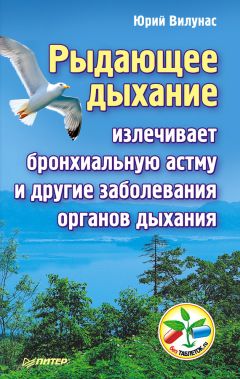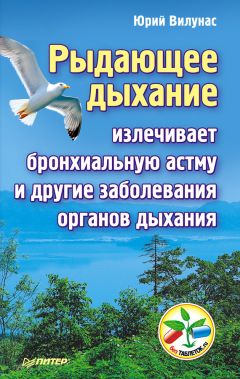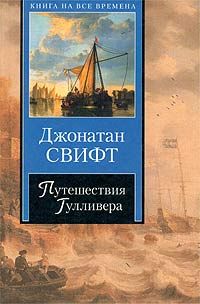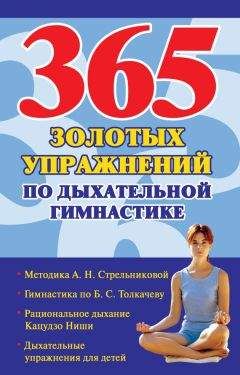Джонатан Свифт - Английский язык с Джонатаном Свифтом. Путешествия Гулливера
fortune ['fLCqn], disagreement ["dIsq'grJmqnt], monarch ['mOnqk]
I told him that since fortune had sent me this boat, I had decided to sail away rather than be the subject of disagreement between two such mighty monarchs. The Emperor seemed to be pleased with this, and I decided to leave as soon as possible.
Five hundred workmen helped me (пятьсот рабочих помогли мне) to make two sails for my boat (сделать два паруса для моей лодки). I made ropes (я изготовил канаты/веревки) by twisting together ten, twenty or thirty of theirs (скручивая вместе /по/ десять, двадцать или = и тридцать их /канатов/). I happened to find a large stone by the seashore (на морском берегу я случайно нашел большой камень; to happen — случаться, происходить; to happen to do smth. — непреднамеренно, случайно совершить какое-л. действие) which I was able to use as an anchor (который я мог использовать в качестве якоря). I cut down some of the largest trees (я срезал несколько самых крупных деревьев) to make oars and masts (чтобы сделать весла и мачты), which was very difficult work (что оказалось очень трудной работой). After I had done the rough work (после того, как я сделал грубую/черновую обработку = грубо обтесал стволы), his Majesty's ships' carpenters helped me to make them smooth (корабельные плотники его величества помогли мне сделать их гладкими = зачистить их).
twist [twIst], theirs [DFqz], smooth [smHD]
Five hundred workmen helped me to make two sails for my boat. I made ropes by twisting together ten, twenty or thirty of theirs. I happened to find a large stone by the seashore which I was able to use as an anchor. I cut down some of the largest trees to make oars and masts, which was very difficult work. After I had done the rough work, his Majesty's ships' carpenters helped me to make them smooth.
In about a month, when everything was prepared (приблизительно через месяц, когда все было готово), I sent word to his Majesty (я известил его величество: «послал слово его…») that I was ready to leave (что готов отправится в путь). The Emperor and royal family came out of the palace (император с августейшей семьей вышли из дворца) and I lay down on the ground to kiss their hands (и я лег на землю, чтобы поцеловать их = им руки). His Majesty then gave me fifty purses (затем его величество подарил мне пятьдесят кошельков). Each contained two hundred sprugs (каждый /из них/ содержал в себе /по/ двести спругов). He also gave me a picture of himself (также он пожаловал мне свой портрет: «картину/изображение себя самого»), which I immediately put inside my glove to protect it (который я сразу же положил себе в перчатку для сохранности; inside — внутри; внутрь).
immediately [I'mJdIqtlI], picture ['pIkCq], glove [glAv]
In about a month, when everything was prepared, I sent word to his Majesty that I was ready to leave. The Emperor and royal family came out of the palace and I lay down on the ground to kiss their hands. His Majesty then gave me fifty purses. Each contained two hundred sprugs. He also gave me a picture of himself, which I immediately put inside my glove to protect it.
I had a large store of food on board my boat (на борту лодки = в лодке у меня имелся = был приготовлен большой запас продовольствия). There was meat from a hundred cows (мясо = туши ста коров) and three hundred sheep (и трехсот овец), as well as bread and plenty to drink (а также хлеб и вдоволь питья; plenty — изобилие; достаток; множество; избыток). I took with me six live cows (я взял с собою шесть живых коров), two bulls (двух быков) and some ewes and rams (и несколько овец и баранов; ewe — овца-самка; sheep /мн. ч. sheep/ — овца как род животных; овца или баран). I wanted to bring them home to my country (я хотел привезти их к себе на родину: «домой в свою страну») to breed (для разведения: «чтобы /их/ разводить»). I had a good bundle of hay (я захватил с собою большую вязанку сена) and a bag of corn (и мешок зерна) to feed them on board (чтобы кормить их на борту = в пути). I would gladly have taken a dozen people (я бы с удовольствием взял /с собою/ дюжину человек = туземцев), but His Majesty wouldn't allow it (но его величество ни за что не согласился на это: «не позволил этого»; wouldn't выражает здесь упорное нежелание).
board [bLd], ewe [jH], dozen ['dAz(q)n]
I had a large store of food on board my boat. There was meat from a hundred cows and three hundred sheep, as well as bread and plenty to drink. I took with me six live cows, two bulls and some ewes and rams. I wanted to bring them home to my country to breed. I had a good bundle of hay and a bag of corn to feed them on board. I would gladly have taken a dozen people, but His Majesty wouldn't allow it.
I set sail on September 24th, 1701, at six o'clock in the morning (я отплыл: «поставил парус» 24 сентября 1701 года в шесть часов утра; 24th — the twenty-forth; 1701 — seventeen oh one или seventeen hundred and one). At six o'clock in the evening (в шесть часов вечера) I saw a small island to the north-west (я заметил на северо-западе небольшой островок), where I dropped anchor (где = у которого я бросил якорь). I ate some food (немного подкрепившись: «я съел немного пищи») and slept well for about six hours (/я/ часов шесть хорошо поспал).
September [sep'tembq], o'clock [q'klOk], ate [et, eIt]
I set sail on September 24th, 1701, at six o'clock in the morning. At six o'clock in the evening I saw a small island to the north-west, where I dropped anchor. I ate some food and slept well for about six hours.
The wind was favourable (ветер был попутный: «благоприятный»), so I steered the same course as the day before with the help of my pocket-compass (и я взял с помощью карманного компаса тот же курс, что и накануне; to steer — править рулем, управлять; вести /судно/; следовать, идти /по определенному курсу/; before — впереди; прежде, раньше). I wanted to reach Van Diemen's Land (я хотел достигнуть Земли Ван Димена). I saw no land that day (в тот день земли я не увидел), but at about three in the afternoon of the next day (но около трех /часов/ пополудни следующего дня) I saw a sail steering to the south-east (я увидел парусное судно, двигавшееся на юго-восток).
favourable ['feIv(q)rqb(q)l], compass ['kAmpqs], south-east ["saV(T)'Jst]
The wind was favourable, so I steered the same course as the day before with the help of my pocket-compass. I wanted to reach Van Diemen's Land. I saw no land that day, but at about three in the afternoon of the next day I saw a sail steering to the south-east.
I hailed her, but got no answer (я окликнул его: «ее», но ответа не получил; при обозначении судов часто используют местоимения женского рода). I sailed nearer and in about half an hour she saw me (я подплыл ближе, и где-то через полчаса он = корабль заметил меня), hung out her flag (вывесил = поднял флаг) and fired a cannon (и выстрелил из пушки). It is not easy to express the joy I felt at the hope (нелегко выразить = трудно описать радость, которую я ощутил, когда явилась надежда: «при надежде») of once more seeing my beloved country (вновь увидеть любимое отечество). My heart leapt (мое сердце забилось сильнее /от восторга/; to leap — прыгать, скакать; забиться сильнее /от испуга, радости; о сердце/; взыграть) to see a British flag on the ship (когда я увидел британский флаг на корабле). I got aboard with all my cows (я взошел на борт со всеми моими коровами), sheep and provisions in my pockets (овцами и провизией в карманах).
beloved [bI'lAvId, bI'lAvd], leapt [lept, lJpt], aboard [q'bLd]
I hailed her, but got no answer. I sailed nearer and in about half an hour she saw me, hung out her flag and fired a cannon. It is not easy to express the joy I felt at the hope of once more seeing my beloved country. My heart leapt to see a British flag on the ship. I got aboard with all my cows, sheep and provisions in my pockets.
The captain of the ship, which was returning from Japan (капитаном корабля, который возвращался из Японии), was Mr John Biddel of Deptford (был мистер Джон Бидл из Дептфорда). He was a very kind man (человек очень любезный) and an excellent sailor (и превосходный моряк). There were about fifty men on board (на борту находилось около пятидесяти человек). I met an old friend, one Peter Williams (я встретил одного /моего/ старого товарища, Питера Вильямса; one — один; некий), who assured the captain of my good character (который заверил капитана в моей добропорядочности; character — характер, нрав; репутация). When I told him where I had come from (когда я рассказал ему = капитану, откуда я приплыл), he thought I was mad (он решил, что я сумасшедший). They thought the dangers I had experienced (они подумали, что опасности, которые я пережил; experience — /жизненный/ опыт; to experience — знать по опыту; испытывать, переживать) had disturbed my mind (повредили мой разум; to disturb — приводить в беспорядок; портить). But when I showed them the cattle and sheep in my pocket (но когда я показал им коров и овец /бывших/ у меня в кармане; cattle — скот /особенно крупный рогатый/; коровы и быки), they knew I was telling the truth (они поняли, что я говорю правду; to know — знать; понимать, осознавать).
Japan [Gq'pxn], assure [q'SVq], character ['kxrIktq]
The captain of the ship, which was returning from Japan, was Mr John Biddel of Deptford. He was a very kind man and an excellent sailor. There were about fifty men on board. I met an old friend, one Peter Williams, who assured the captain of my good character. When I told him where I had come from, he thought I was mad. They thought the dangers I had experienced had disturbed my mind. But when I showed them the cattle and sheep in my pocket, they knew I was telling the truth.
I also showed them the gold and the picture (также я показал им золото и портрет) the Emperor of Blefuscu had given me (которые мне дал/подарил император Блефуску). I gave the captain a present of four hundred sprugs (я вручил капитану четыреста спругов: «дал подарок в виде…») and promised to give him a present of a pregnant cow and sheep (и обещал подарить ему стельную корову и овцу; pregnant — беременная; стельная /о корове/, суягная /об овце/ и т. д.) when we arrived in England (когда мы прибудем в Англию).
gold [gqVld], present ['prez(q)nt], cow [kaV]
I also showed them the gold and the picture the Emperor of Blefuscu had given me. I gave the captain a present of four hundred sprugs and promised to give him a present of a pregnant cow and sheep when we arrived in England.
We arrived in England on April 13th, 1702 (мы прибыли в Англию 13 апреля 1702 года). I put my cattle to graze on a bowling green at Greenwich (я пустил свой скот попастись на лужайке для игры в шары в Гринвиче; green — зеленый; зелень; лужайка, луг), where they fed heartily on the fine grass (где они с удовольствием поедали тонкую и нежную траву; to feed — кормить; питаться, кормиться; heartily — сердечно, от всего сердца; охотно, усердно; fine — прекрасный, превосходный; изящный; тонкий, мелкий, нежный). I couldn't have kept them alive (я не смог бы сохранить: «сохранить живыми» их = этих животных) on such a long voyage (в течение столь долгого путешествия) if the captain hadn't given me some of his biscuits (если бы капитан не давал мне своих галет; biscuit — сухое печенье; галета), which, mixed with water, was their best food (которые, смешанные с водою = размоченные в воде, были их = для них лучшей пищей).




